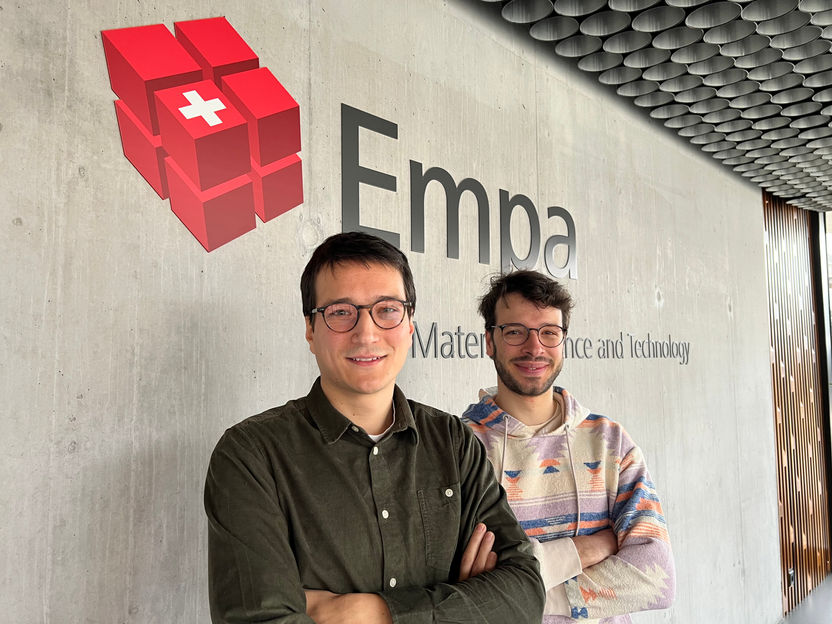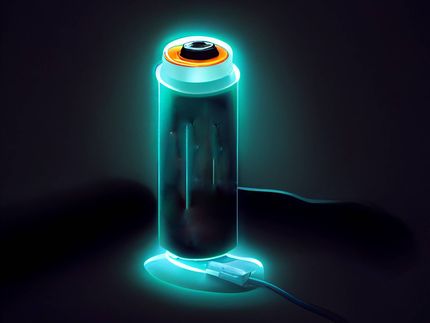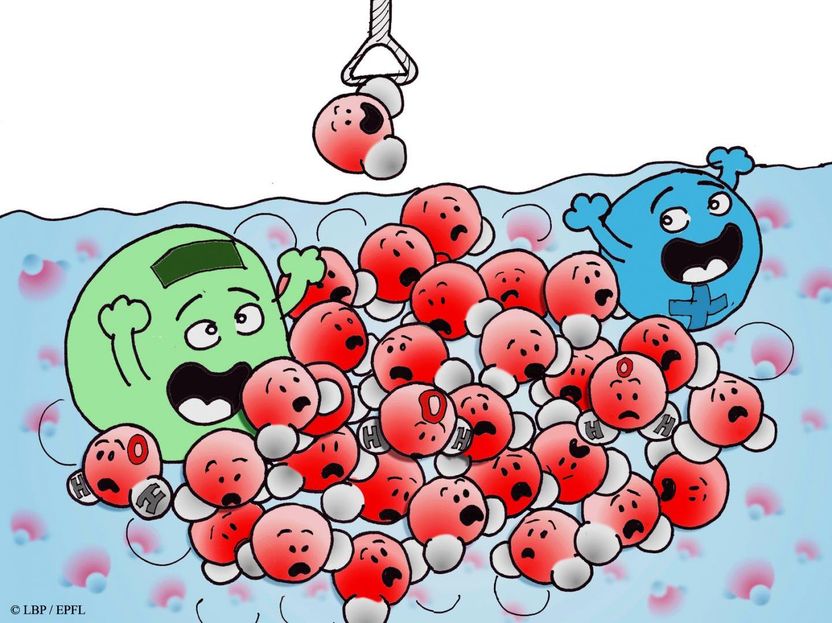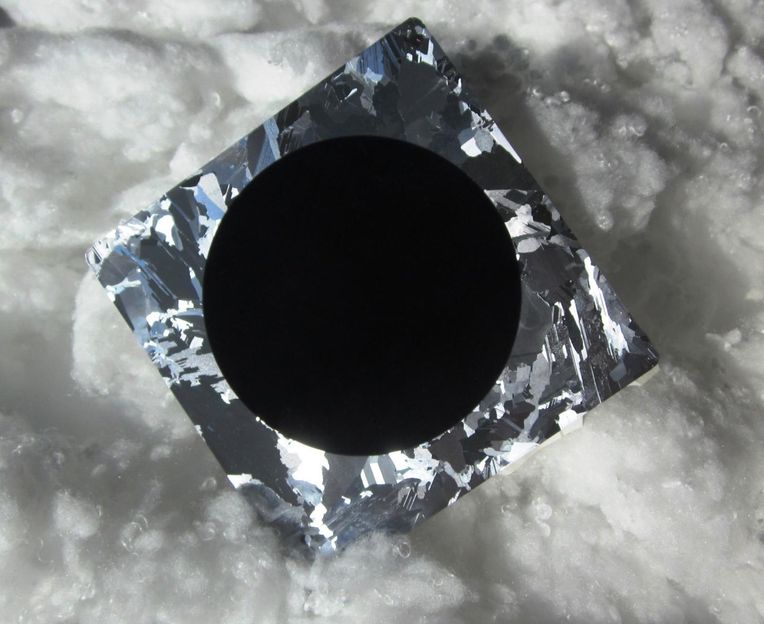Two young researchers on their way to becoming entrepreneurs
Start-ups for environmentally friendly batteries and nanoparticles for cancer therapy in planning
Advertisement
Two young Empa scientists each receive an Empa Entrepreneur Fellowship to develop innovative products based on their research. Abdessalem Aribia is developing environmentally friendly and safe batteries, while Subas Scheibler is working on nanoparticles for cancer therapy.

The two Empa Entrepreneur Fellows 2023: Subas Scheibler (left) researches nanoparticles for medical applications, Abdessalem Aribia develops long-lasting and environmentally friendly batteries.
Andrea Six, Empa
The Empa Entrepreneur Fellowship is awarded to researchers who want to found a start-up based on their research. This year, two young scientists have received such support. They will now spend a year developing their research results into highly innovative products.
Short charging time, long service life
The first Entrepreneur Fellowship is awarded to Abdessalem Aribia. As part of his doctoral studies with Ayodhya N. Tiwari, professor at ETH Zurich and head of Empa's Laboratory for Thin Films and Photovoltaics, and under the supervision of Yaroslav Romanyuk, group leader within the lab, he worked on a solid-state battery based on metallic lithium, which brings some significant advantages over conventional batteries.
Aribia and his partner Moritz Futscher, a postdoctoral researcher in the Thin Films and Photovoltaics Laboratory, are developing so-called thin-film solid-state batteries. While this battery technology is not new in and of itself, the researchers have developed a novel method for stacking the cells, which are only a few micrometers thick, into larger and more powerful batteries. They were also the first to use the high-precision method of vacuum coating to manufacture the batteries. Unlike traditional battery manufacture, this process does not require toxic solvents.
The new battery not only has a better environmental footprint, it is also much more durable and can be recharged very fast. In addition, it is non-flammable, making it much safer than conventional lithium-ion batteries. "You could cut our battery in half and the only thing that would happen is that you would end up with a battery that was only half as good," says Aribia.
Aribia and Futscher see potential applications for their battery in sophisticated devices such as robots, drones and satellites, as well as consumer electronics such as smartwatches. In the fellowship year, Aribia's main focus is to scale the battery. "A five-centimeter battery with two to three layers could already be used in some devices," Aribia says.
Initially, the young researcher did not plan to found a start-up. "But I firmly believe that this product can bring real benefits," he says. Since receiving the fellowship, he has already completed several courses and coaching sessions on starting a business.
Tiny magnets for cancer therapy
The second Entrepreneur Fellowship goes to Subas Scheibler. He works in the Empa laboratories Magnetic and Functional Thin Films in Dübendorf and Particles Biology Interactions in St. Gallen, as well as in the Nanoparticle Systems Engineering Lab at ETH Zurich. His research focuses on the interface of these disciplines, in particular on magnetic thin films as a basis for the production of nanoparticles and their applications in biomedicine.
The nanoparticles are required for hyperthermia treatment, in which they are applied to a tumor and exposed to a magnetic field, heating the tumor up to 45 degrees and thus killing the cancer cells. As a result, even tumors that are difficult to access and highly branched growths, such as glioblastoma tumors in the brain, can be effectively treated.
Scheibler, who is currently completing his dissertation at Empa and ETH Zurich, aims to advance innovative applications in cancer treatment. He received the fellowship to achieve industrial production of magnetic nanoparticles via thin-film processes. "Important steps toward clinical application of this novel technology include demonstrating the possibility of industrial production and the compatibility of the nanoparticles with healthy cells," explains Scheibler.
Back in 2021, the young researcher won the Pitching Contest in the Innosuisse Business Concept Course. Together with his mentors and industry partners, he will now work towards founding a start-up.
Other news from the department science
Most read news
More news from our other portals
Something is happening in the chemical industry ...
This is what true pioneering spirit looks like: Plenty of innovative start-ups are bringing fresh ideas, lifeblood and entrepreneurial spirit to change tomorrow's world for the better. Immerse yourself in the world of these young companies and take the opportunity to get in touch with the founders.
See the theme worlds for related content
Topic World Battery Technology
The topic world Battery Technology combines relevant knowledge in a unique way. Here you will find everything about suppliers and their products, webinars, white papers, catalogs and brochures.

Topic World Battery Technology
The topic world Battery Technology combines relevant knowledge in a unique way. Here you will find everything about suppliers and their products, webinars, white papers, catalogs and brochures.



























































